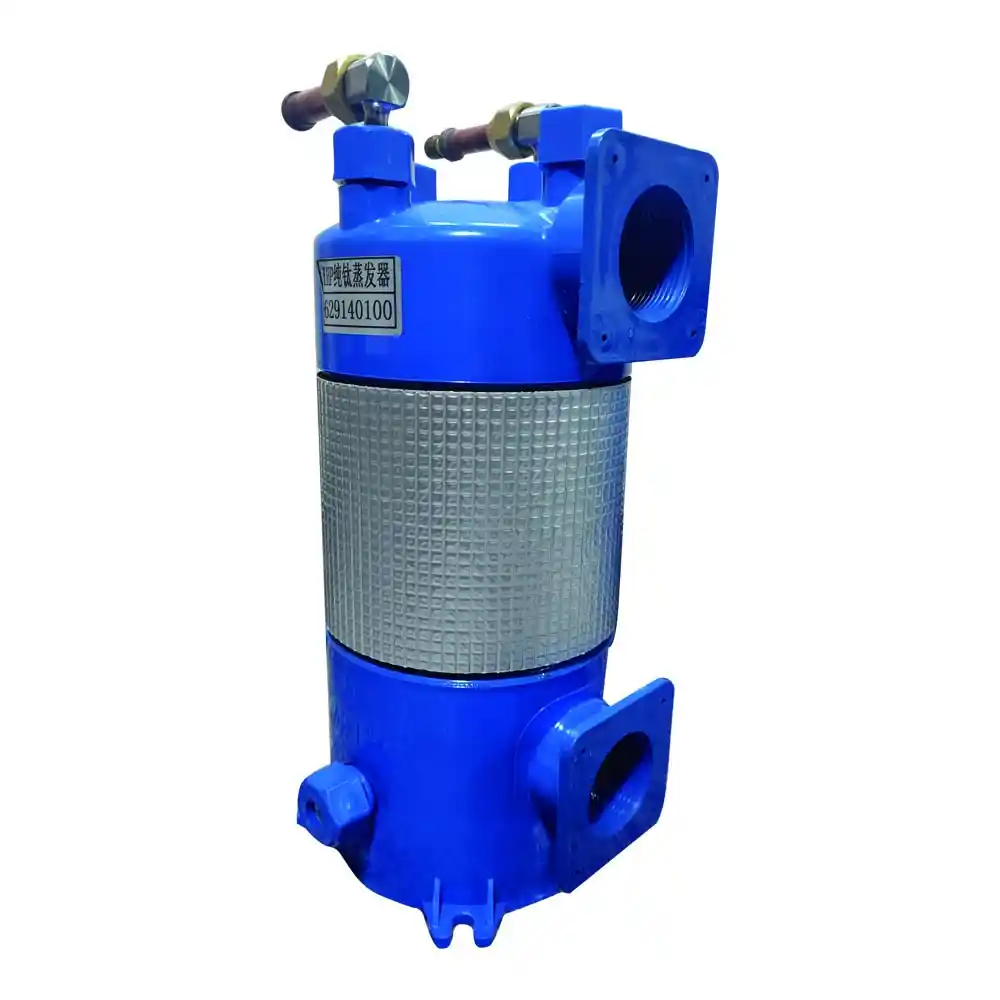1. Introduction
Chemical processing is a complex and critical industry that involves various reactions, transformations, and separations. Efficient heat transfer is crucial for maintaining optimal operating conditions and ensuring the successful execution of chemical processes. Titanium Coil Heat Exchangers have emerged as a reliable and versatile solution for heat transfer in chemical processing applications. In this article, we will explore the use of Titanium Coil Heat Exchangers in chemical processing, highlighting their benefits, performance comparisons, and specific case studies.
2. Understanding Titanium Coil Heat Exchangers
Titanium Coil Heat Exchangers utilize coiled titanium tubes to facilitate heat transfer between two fluids in a chemical process. The coiled design offers a larger heat transfer surface area, leading to enhanced heat transfer efficiency. Titanium, known for its exceptional corrosion resistance, is well-suited for chemical processing environments that involve corrosive fluids and high temperatures. Let’s delve into the specific applications and advantages of Titanium Coil Heat Exchangers in chemical processing:
2.1 Benefits of Titanium Coil Heat Exchangers in Chemical Processing
Titanium Coil Heat Exchangers offer several advantages that make them highly suitable for chemical processing applications:
2.1.1 Corrosion Resistance
Chemical processes often involve aggressive and corrosive fluids. Titanium’s inherent corrosion resistance makes Titanium Coil Heat Exchangers highly durable and reliable in such challenging environments. They can withstand the corrosive effects of acids, alkalis, and other corrosive substances commonly encountered in chemical processing.
2.1.2 High Heat Transfer Efficiency
Efficient heat transfer is crucial for maintaining precise temperature control and maximizing the productivity of chemical processes. Titanium Coil Heat Exchangers excel in heat transfer efficiency due to their coiled design, which provides a larger heat transfer surface area. This design enables enhanced heat transfer rates and facilitates faster process kinetics.
2.1.3 Temperature and Pressure Resistance
Chemical processes often operate at high temperatures and pressures. Titanium Coil Heat Exchangers can withstand these demanding conditions, ensuring stable and reliable performance over extended periods. They offer high-temperature resistance, allowing for efficient heat transfer in processes involving temperature-sensitive reactions.
2.1.4 Reduced Fouling and Maintenance
Fouling, the accumulation of unwanted deposits on heat transfer surfaces, can hinder heat transfer efficiency and increase maintenance requirements. Titanium Coil Heat Exchangers exhibit excellent anti-fouling properties, minimizing fouling-related issues and reducing the need for frequent cleaning and maintenance.
2.2 Performance Comparison: Titanium Coil Heat Exchangers vs. Other Heat Exchanger Types
To understand the advantages of Titanium Coil Heat Exchangers in chemical processing, let’s compare their performance with other commonly used heat exchanger types. The following table presents a comparison of Titanium Coil Heat Exchangers, Shell and Tube Heat Exchangers, and Plate Heat Exchangers:
| Comparison Criteria | Titanium Coil Heat Exchangers | Shell and Tube Heat Exchangers | Plate Heat Exchangers |
|---|---|---|---|
| Corrosion Resistance | Excellent | Good | Moderate |
| Heat Transfer Efficiency | High | High | Moderate |
| Pressure Handling Capacity | High | High | Low |
| Compact Design | Yes | No | Yes |
| Maintenance Requirements | Low | Moderate | Moderate |
| Fouling Resistance | Excellent | Good | Moderate |
Note: The table provides a general comparison based on typical performance characteristics and may vary depending on specific product specifications and application requirements.
3. Case Studies: Titanium Coil Heat Exchangers in Chemical Processing
To showcase the practical application of Titanium Coil Heat Exchangers in chemical processing, let’s explore two case studies:
3.1 Case Study 1: Acid Recovery
In the production of certain chemicals, acid recovery is a vital process to minimize waste and reduce environmental impact. Titanium Coil Heat Exchangers play a crucial role in acid recovery systems by efficiently transferring heat from the hot acid stream to the incoming acid feed. This heat recovery process helps conserve energy and reduces the need for additional heating equipment. The exceptional corrosion resistance of titanium ensures the longevity and reliability of the heat exchanger in handling highly acidic solutions.
3.2 Case Study 2: Petrochemical Refining
Petrochemical refining processes involve various heat transfer operations, such as cooling, condensing, and vaporization. Titanium Coil Heat Exchangers are widely used in petrochemical refineries due to their ability to withstand aggressive chemicals, high temperatures, and high-pressure conditions. They contribute to the efficient operation of distillation columns, reactor cooling, and heat recovery systems, ensuring optimal performance and energy efficiency.
4. Conclusion
Titanium Coil Heat Exchangers have emerged as a game-changer in chemical processing applications. Their unique properties, including corrosion resistance, high heat transfer efficiency, and temperature and pressure resistance, make them ideal for handling aggressive chemicals and demanding process conditions. By utilizing Titanium Coil Heat Exchangers, chemical processing industries can achieve improved productivity, reduced maintenance, and energy savings. With their exceptional performance and reliability, Titanium Coil Heat Exchangers continue to revolutionize the field of chemical processing, supporting sustainable and efficient operations.


